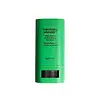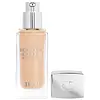What's inside
What's inside
 Key Ingredients
Key Ingredients

 Benefits
Benefits

 Concerns
Concerns

 Ingredients Side-by-side
Ingredients Side-by-side

Water
Skin ConditioningDibutyl Adipate
EmollientSynthetic Wax
AbrasiveMethyl Methacrylate Crosspolymer
Butyloctyl Salicylate
Skin ConditioningCaprylyl Trimethicone
Skin ConditioningButylene Glycol
HumectantPropylheptyl Caprylate
EmollientDiethylamino Hydroxybenzoyl Hexyl Benzoate
UV FilterIsododecane
EmollientBis-Ethylhexyloxyphenol Methoxyphenyl Triazine
Skin ConditioningCaprylyl Methicone
Skin ConditioningEthylhexyl Triazone
UV AbsorberPolysilicone-15
UV FilterCeresin
Emulsion StabilisingCamellia Japonica Seed Oil
EmollientDiphenylsiloxy Phenyl Trimethicone
Skin ConditioningNiacinamide
SmoothingPolyglyceryl-3 Polyricinoleate
EmulsifyingLauryl Polyglyceryl-3 Polydimethylsiloxyethyl Dimethicone
Skin ConditioningDimethicone/Vinyl Dimethicone Crosspolymer
Skin ConditioningSodium Chloride
Masking1,2-Hexanediol
Skin ConditioningPolyglyceryl-4 Diisostearate/Polyhydroxystearate/Sebacate
EmulsifyingVinyl Dimethicone/Methicone Silsesquioxane Crosspolymer
Caprylyl Glycol
EmollientGlyceryl Caprylate
EmollientPhyllostachys Nigra Leaf Extract
Skin ConditioningPhyllostachys Pubescens Shoot Bark Extract
Skin ConditioningAdenosine
Skin ConditioningAspergillus Ferment
Skin ConditioningTocopherol
AntioxidantDipropylene Glycol
HumectantPentylene Glycol
Skin ConditioningBambusa Vulgaris Water
Skin ConditioningBetaine
HumectantEctoin
Skin ConditioningPanthenol
Skin ConditioningWater, Dibutyl Adipate, Synthetic Wax, Methyl Methacrylate Crosspolymer, Butyloctyl Salicylate, Caprylyl Trimethicone, Butylene Glycol, Propylheptyl Caprylate, Diethylamino Hydroxybenzoyl Hexyl Benzoate, Isododecane, Bis-Ethylhexyloxyphenol Methoxyphenyl Triazine, Caprylyl Methicone, Ethylhexyl Triazone, Polysilicone-15, Ceresin, Camellia Japonica Seed Oil, Diphenylsiloxy Phenyl Trimethicone, Niacinamide, Polyglyceryl-3 Polyricinoleate, Lauryl Polyglyceryl-3 Polydimethylsiloxyethyl Dimethicone, Dimethicone/Vinyl Dimethicone Crosspolymer, Sodium Chloride, 1,2-Hexanediol, Polyglyceryl-4 Diisostearate/Polyhydroxystearate/Sebacate, Vinyl Dimethicone/Methicone Silsesquioxane Crosspolymer, Caprylyl Glycol, Glyceryl Caprylate, Phyllostachys Nigra Leaf Extract, Phyllostachys Pubescens Shoot Bark Extract, Adenosine, Aspergillus Ferment, Tocopherol, Dipropylene Glycol, Pentylene Glycol, Bambusa Vulgaris Water, Betaine, Ectoin, Panthenol
Water
Skin ConditioningC9-12 Alkane
SolventMica
Cosmetic ColorantDicaprylyl Ether
EmollientCoco-Caprylate/Caprate
EmollientPropanediol
SolventPolyglyceryl-6 Polyricinoleate
EmulsifyingDisteardimonium Hectorite
StabilisingPolyglyceryl-2 Isostearate
EmulsifyingLecithin
EmollientCopernicia Cerifera Wax Extract
Glycerin
HumectantPentylene Glycol
Skin ConditioningPolyglyceryl-10 Decaisostearate
EmollientHibiscus Sabdariffa Flower Extract
Skin ConditioningIris Florentina Root Extract
MaskingSodium Chloride
MaskingSodium Myristoyl Glutamate
CleansingHydroxyacetophenone
AntioxidantEthylhexylglycerin
Skin ConditioningEthylene Brassylate
MaskingSynthetic Fluorphlogopite
Potassium Sorbate
PreservativePropylene Carbonate
SolventParfum
MaskingAluminum Hydroxide
EmollientTocopherol
AntioxidantHydrolyzed Viola Tricolor Extract
Skin ProtectingCaprylic/Capric Triglyceride
MaskingPolyhydroxystearic Acid
EmulsifyingTin Oxide
Abrasive1,2-Hexanediol
Skin ConditioningCaprylyl Glycol
EmollientCitric Acid
BufferingIsostearic Acid
CleansingPolyglyceryl-3 Polyricinoleate
EmulsifyingSodium Benzoate
MaskingCI 77891
Cosmetic ColorantCI 77163
Cosmetic ColorantCI 77491
Cosmetic ColorantCI 77492
Cosmetic ColorantCI 77499
Cosmetic ColorantWater, C9-12 Alkane, Mica, Dicaprylyl Ether, Coco-Caprylate/Caprate, Propanediol, Polyglyceryl-6 Polyricinoleate, Disteardimonium Hectorite, Polyglyceryl-2 Isostearate, Lecithin, Copernicia Cerifera Wax Extract, Glycerin, Pentylene Glycol, Polyglyceryl-10 Decaisostearate, Hibiscus Sabdariffa Flower Extract, Iris Florentina Root Extract, Sodium Chloride, Sodium Myristoyl Glutamate, Hydroxyacetophenone, Ethylhexylglycerin, Ethylene Brassylate, Synthetic Fluorphlogopite, Potassium Sorbate, Propylene Carbonate, Parfum, Aluminum Hydroxide, Tocopherol, Hydrolyzed Viola Tricolor Extract, Caprylic/Capric Triglyceride, Polyhydroxystearic Acid, Tin Oxide, 1,2-Hexanediol, Caprylyl Glycol, Citric Acid, Isostearic Acid, Polyglyceryl-3 Polyricinoleate, Sodium Benzoate, CI 77891, CI 77163, CI 77491, CI 77492, CI 77499
 Reviews
Reviews

Ingredients Explained
These ingredients are found in both products.
Ingredients higher up in an ingredient list are typically present in a larger amount.
1,2-Hexanediol is a synthetic liquid and another multi-functional powerhouse.
It is a:
- Humectant, drawing moisture into the skin
- Emollient, helping to soften skin
- Solvent, dispersing and stabilizing formulas
- Preservative booster, enhancing the antimicrobial activity of other preservatives
Caprylyl Glycol is a humectant and emollient, meaning it attracts and preserves moisture.
It is a common ingredient in many products, especially those designed to hydrate skin. The primary benefits are retaining moisture, skin softening, and promoting a healthy skin barrier.
Though Caprylyl Glycol is an alcohol derived from fatty acids, it is not the kind that can dry out skin.
This ingredient is also used as a preservative to extend the life of products. It has slight antimicrobial properties.
Learn more about Caprylyl GlycolPentylene glycol is typically used within a product to thicken it. It also adds a smooth, soft, and moisturizing feel to the product. It is naturally found in plants such as sugar beets.
The hydrophilic trait of Pentylene Glycol makes it a humectant. As a humectant, Pentylene Glycol helps draw moisture from the air to your skin. This can help keep your skin hydrated.
This property also makes Pentylene Glycol a great texture enhancer. It can also help thicken or stabilize a product.
Pentylene Glycol also acts as a mild preservative and helps to keep a product microbe-free.
Some people may experience mild eye and skin irritation from Pentylene Glycol. We always recommend speaking with a professional about using this ingredient in your routine.
Pentylene Glycol has a low molecular weight and is part of the 1,2-glycol family.
Learn more about Pentylene GlycolThis ingredient is an emulsifier. It is created from Polyglycerin-3 and Ricinoleic Acid.
As an emulsifier, it prevents waters and oils from separating. According to a manufacturer this ingredient is fully biodegradable.
This ingredient may not be safe for Malassezia folliculitis due to its Ricinoleic Acid base. Ricinoleic Acid is a fatty acid derived from castor oil.
Learn more about Polyglyceryl-3 PolyricinoleateChances are, you eat sodium chloride every day. Sodium Chloride is also known as table salt.
This ingredient has many purposes in skincare: thickener, emulsifier, and exfoliator.
You'll most likely find this ingredient in cleansers where it is used to create a gel-like texture. As an emulsifier, it also prevents ingredients from separating.
There is much debate on whether this ingredient is comedogenic. The short answer - comedogenic ratings don't tell the whole story. Learn more about comegodenic ratings here.
The concensus about this ingredient causing acne seems to be divided. Research is needed to understand if this ingredient does cause acne.
Scrubs may use salt as the primary exfoliating ingredient.
Learn more about Sodium ChlorideTocopherol (also known as Vitamin E) is a common antioxidant used to help protect the skin from free-radicals and strengthen the skin barrier. It's also fat soluble - this means our skin is great at absorbing it.
Vitamin E also helps keep your natural skin lipids healthy. Your lipid skin barrier naturally consists of lipids, ceramides, and fatty acids. Vitamin E offers extra protection for your skin’s lipid barrier, keeping your skin healthy and nourished.
Another benefit is a bit of UV protection. Vitamin E helps reduce the damage caused by UVB rays. (It should not replace your sunscreen). Combining it with Vitamin C can decrease sunburned cells and hyperpigmentation after UV exposure.
You might have noticed Vitamin E + C often paired together. This is because it is great at stabilizing Vitamin C. Using the two together helps increase the effectiveness of both ingredients.
There are often claims that Vitamin E can reduce/prevent scarring, but these claims haven't been confirmed by scientific research.
Learn more about TocopherolWater. It's the most common cosmetic ingredient of all. You'll usually see it at the top of ingredient lists, meaning that it makes up the largest part of the product.
So why is it so popular? Water most often acts as a solvent - this means that it helps dissolve other ingredients into the formulation.
You'll also recognize water as that liquid we all need to stay alive. If you see this, drink a glass of water. Stay hydrated!
Learn more about Water